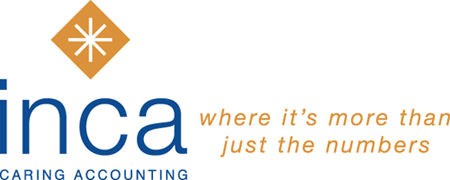Are you a limited company that has Construction Industry Scheme (CIS) deductions made by your customers? Are you missing out on money that should be in your business?
If your business operates in the construction sector and is registered on the government’s CIS scheme, any contractors you work for are required to deduct 20% direct from payments they make to you.
The deductions your business ‘suffers’ are passed on to HMRC, and – in most circumstances – the tax system will ensure they make their way back into your businesses’ revenue, to be used as advance payment towards any tax liability you may have at the end of the year.

But the way CIS deductions are refunded is different for sole traders and limited companies.
For a self-employed sole trader, CIS deductions made by customers are automatically assigned to their personal income tax account by HMRC, so they can be set against their tax bill under Self Assessment.
If you operate as a limited company on the other hand, your CIS deductions are allocated into your payroll account to be used to offset any CIS your company has to pay out. In the event that you have a surplus at the year-end, this can be used to help settle your Corporation Tax bill.
So far then, all relatively straightforward. But if you run a limited company, there are two ways you may be missing out on CIS:
1. If you operate a limited company but don’t run payroll
If you’re having CIS deducted, but you don’t operate a payroll system in your company, you have a problem which you need to address – or be out of pocket.
There may be any number of reasons your limited company doesn’t process a payroll solution. You might, for example, have income from other sources and employ no staff other than yourself. Whatever the reason, if you do nothing, the outcome will be the same. Because HMRC won’t be aware that your business has suffered CIS, the deductions that are being taken from you will simply be left to languish at Her Majesty’s pleasure!
It’s something your accountant may not pick up on, and because it will just roll over from one year to the next, it could amount to a sizable sum – and there’s no point in waiting for HMRC to notify you that it’s sitting there – they won’t.
Are you missing out on revenue that rightfully belongs to you and could make a real difference to your business?
2. If your company yearend doesn’t follow the tax year
Even if your limited company reports the CIS it suffers through payroll, and deductions are reimbursed into your payroll account, your business might not be operating the CIS system as efficiently as it could be.
Because payroll runs parallel to the tax year, unless your business year end is 31st March, there will be a mismatch between the date your business has to pay corporation tax and the date you will be refunded any CIS overpayment you’re due.
For this reason, we recommend any limited company registered for CIS brings its year-end in line with the tax year, so that each year, it will have a full 12 months of CIS deductions available to set against Corporation Tax liability for the same period.
If you recognise either of these scenarios, what should you do? It couldn’t be easier; simply pick up the phone and speak to us!
Let Inca Help You to Unlock Your CIS Account!
Whether you operate a payroll system or not, if you run a limited company and think you’ve had CIS deducted but not refunded, we can help you to recover what’s yours.
We’ll liaise with HMRC on your behalf, find out what you’re owed, arrange for any refund to be paid back into your business – or set against other liabilities such as VAT or Corporation Tax.
And if your financial year isn’t in line with the tax year, we can help you change your year-end so you can optimise your CIS reimbursements.

At Inca, we work with many clients in the construction sector and have an in-depth understanding of CIS and taxation in relation to the industry. If you have a question or would like advice regarding CIS, get in touch with us now to arrange a meeting by calling us on 01235 868888 or email us at [email protected]




